WITNESS RADIO MILESTONES
Reasons for the landless Buganda Land Board
Published
7 years agoon
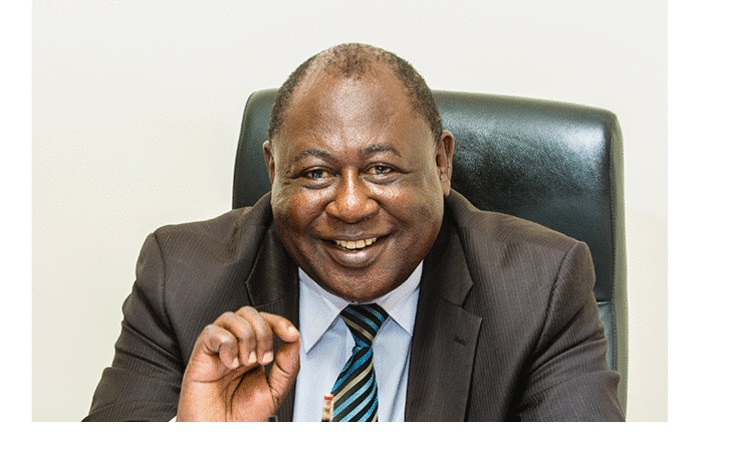
Once upon a time, there was a public body which went by the name, the Buganda Land Board. This body was set up under Chapter X11 of the 1962 Constitution to manage public land in Buganda. This public body had its roots in the 1900 Agreement (Uganda/Buganda Agreement) under which various chunks of land of varying sizes were grabbed from natives and given away to various individuals, chieftains and religious groups. The chunks of land given away were neither surveyed nor did they have any known tenancy category in the Kiganda culture. The colonial authorities eventually regularised this land grabbing and in 1908 enacted a legislation known as The Land Law of June 15, 1908. This law created two tenancies. Under Section 2 thereof, a tenancy known as Mailo was created. The section specifically stated to hold land in a manner described in that section “will be known as holding Mailo, and land of this description will be called Mailo”. Section 5 created a second tenancy which was described as that land which a chieftainship shall hold for the time he shall hold the chieftainship. It stipulated that he shall be entitled to take all the profits from that land, but when he leaves that chieftainship, the successor chief will take over the land. In the words of Section 5(c) “to hold land in this manner, will be called to hold official mailo.” The actual demarcation of both the mailoand the official mailo tenancies was not done until five years later when the Buganda Agreement (Allotment and Survey) Law of 1913 was enacted.
Since the mailo was under the control of individuals, or bodies to which it was allocated, it was necessary to put in place a statutory public body to manage the official mailo and herein lay the origin of the Buganda Land Board. The chieftainships holding official mailo were diverse, covering saza chiefs, gombolola chiefs, land held under chieftainships of the Katikiro, Omulamuzi, Omuwanika and others described in the 1900 Agreement and elsewhere in the subsequent laws as official mailo. Indeed even the chunk of land allocated to the Kabaka under the 1900 Agreement was converted to official mailo under Section 2(b) of the June 15, 1908 Land Law. The Buganda Land Board under whose authority the administration of the officialmailo was placed was a statutory body of the Uganda Protectorate. It should be noted that at the conclusion of 1900 Agreement, the Uganda Protectorate consisted of only one province and that was the Buganda Kingdom. The 1900 Agreement in Article 3 envisaged “other Provinces” which were in future to be added to the Province of Buganda Kingdom and indeed when the final demarcations of the Uganda Protectorate were made, three other provinces namely; the Western Province, the Eastern and the Northern provinces had all been created and the four formed the Uganda Protectorate which eventually emerged into the current independent Republic of Uganda.
When the Uganda Protectorate gained Independence, the Constitution of the newly independent State of Uganda, so fit to dedicate the whole chapter on the administration of Public Land. This was Chapter XII and under Article 118, Public Land in Uganda was to be administered by three sets of bodies. The areas of Uganda which were administered under federo units, public land was under Land Boards, while those under districts; public land was administered by District Land Boards. The rest of Uganda, Land was administered by the Uganda Land Commission. The Buganda Land Board was under Article 118(3) recognised as the body administering public land in the Buganda Kingdom. It should be clarified that the public land in Buganda under the Buganda Land Board went under the nomenclature of official mailo. All the Statutory bodies administering public land in Uganda namely; Uganda Land Commission, Federal Land Boards and District Land Boards, were Constitutionally subject to the scrutiny of the Auditor General and, therefore, accountable to the public.
The wind of change which blew across the political terrain of the country swept away the 1962 Constitution and a new Constitution known as the 1967 Republic Constitution was promulgated. Like the 1962 Constitution, the 1967 one, also dedicated a whole Chapter on the administration of public land. This was Chapter XII and Article 108 under that chapter specifically set out the Land Commission of Uganda as the body to administer all the public land in Uganda. For clarity, Article 108 (5) specified the various land entities vested in the Land Commission. These included every official estate held by a corporation sole by virtue of the provisions of the official estate Act and any land which immediately before the commencement of the 1967 Republican Constitution was vested in the land board of a kingdom or a district. Thus, the public land which had under the 1962 Constitution been administered by the various Land Boards of federal units or districts were transferred to one single public body namely; The Land Commission of Uganda.
Thus, the official mailo under the Buganda Land Board was never confiscated; it was simply under the constitutional order of the day transferred to a public body under which the administration of all public land in Uganda was consolidated.
The duplicity of giving different names to public land depending on its location in Uganda, for example, Buganda Kingdom where it had been called official mailo was streamlined with all other public land in the country under one body namely; The Uganda Land Commission.
It was public land being managed by Buganda Land Board whose administration was transferred to the Uganda Land Commission. The 1967 Constitution like the one of 1962 created the position of an Auditor General for Uganda to which all public offices and institutions had to submit for scrutiny and were, therefore, subject to public accountability.
For avoidance of doubt, the 1967 Constitution, created Article 126 for the continuance in force of the system of mailo to emphasise the difference from the public land which had been called official and which by the constitution had been streamlined by being moved from the Buganda Land Board to the Uganda Land Commission.
The current Buganda Land Board is not a successor in title to the Buganda Land Board of the 1962 Constitution. It is not a statutory body and has no mandate to administer any public land by whatever name called. Its legal status going by its instrument of registration is that of a private limited liability company with one (1) shareholder. It has no accountability to the public and no queries can be raised by a public body on how the company is run. It cannot legally claim ownership of public property by virtue of the Traditional Rulers (Restitution of Assets and Properties) Act 1993.
That Act having been enacted before the coming into force of the 1995 Constitution, must be construed with such modifications, adaptations, qualifications and exceptions which may be necessary to bring it into conformity with the constitution.
The 1995 Constitution cannot be construed to resituate public assets to institutions by whatever name called which never owned them in the first place, from whom they have never been confiscated and by whom no official public accountability is exacted by the Constitution. Public assets can only be managed by individuals or body of individuals or corporations which can be scrutinised by the Auditor General and, therefore, accountable to the Public.
The Constitution has vested the administration of public land in the Uganda Land Commission, District Land Boards, or Regional Land Boards and all these public bodies are scrutinisable by the Auditor General and, therefore, accountable to the public. Under the 1967 Constitution, when all public land had been put under the Land Commission, any monies accruing from the Land so vested under the commission had to be paid to such authority as Parliament may prescribe. This mandate now falls to the three bodies indicated above which are constitutionally recognised to administer public land in Uganda. Buganda Land Board being a private limited company has no obligation to account for any monies or benefit derived from the Land under its administration.
It is in this scheme of things that it is imperative for Buganda Land Board Limited to return the land it is illegally holding and profiteering from unjustly. Public Assets cannot be in the hands of a private limited company.
The handlers of the Buganda Kingdom, must be humble and realise the Constitutional mistake of holding onto Land Titles and assuming proprietorship where no law obtains conferring ownership of public land to a cultural institution. This is the decent way to do it and this action shall go a long way in restoring respectability of the cultural leadership.
The ball is squarely in the hands of the sole shareholder of the Buganda Land Board Company Limited who has the unique historical opportunity to redeem the tremendous goodwill which surrounded the return of traditional/cultural rulers to the Uganda political scene, but which, if left with no action taken, shall surely disappear into oblivion.
Extracted from the New Vision
…
Related posts:
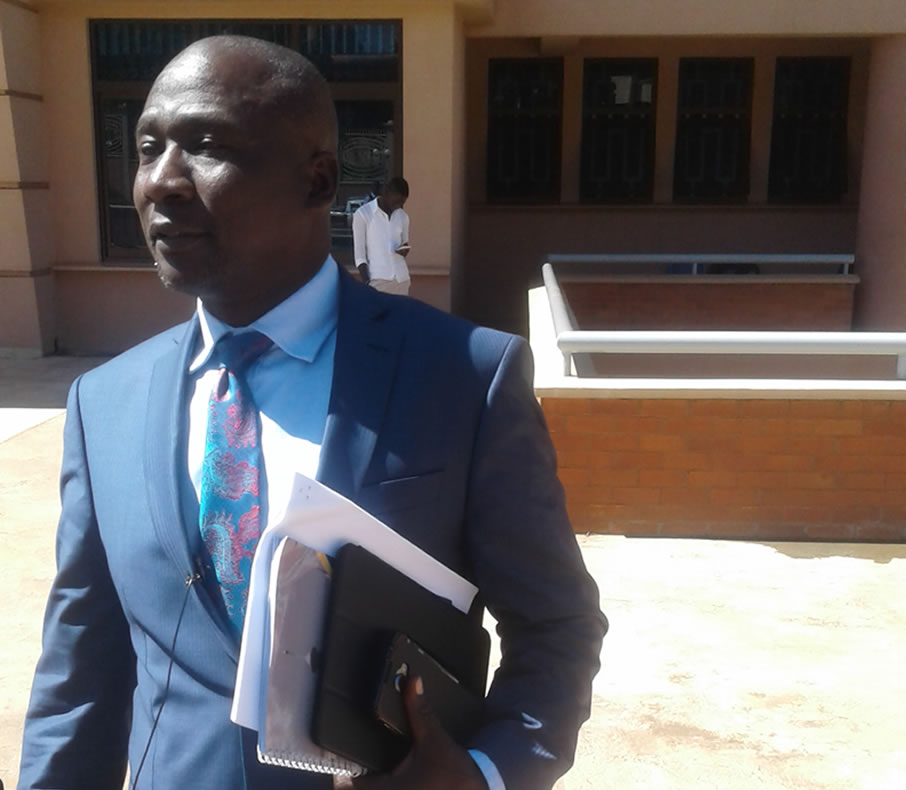
 Mubende Land Grab: Witnessradio.org presents another petition to Land Inquiry Commission, Wants All Titles being used to evict Natives to be Investigated
Mubende Land Grab: Witnessradio.org presents another petition to Land Inquiry Commission, Wants All Titles being used to evict Natives to be Investigated
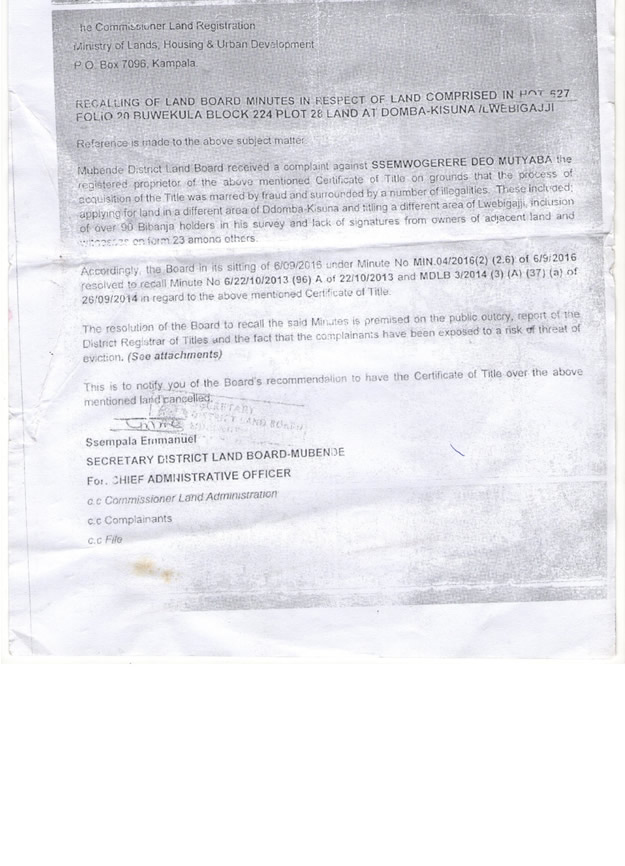 Mubende district land board to cancel land title over fraud
Mubende district land board to cancel land title over fraud
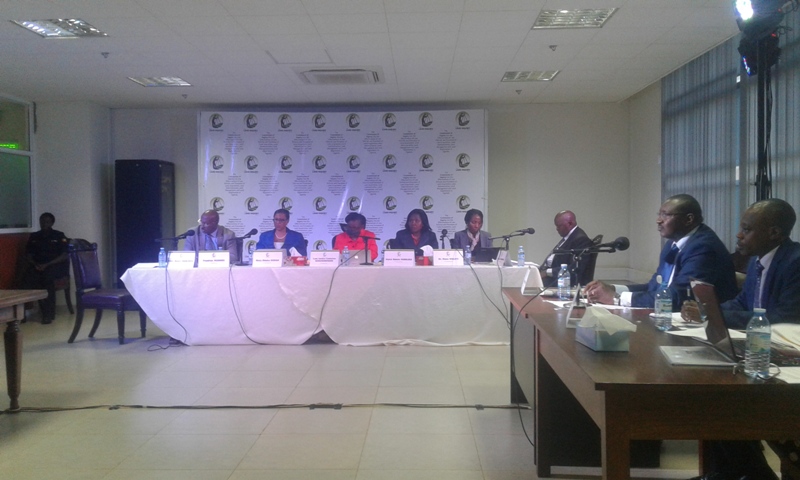 Kampala District Land Board Chairperson Nsimbambi Reveals City Land Grabbers’ Techniques
Kampala District Land Board Chairperson Nsimbambi Reveals City Land Grabbers’ Techniques
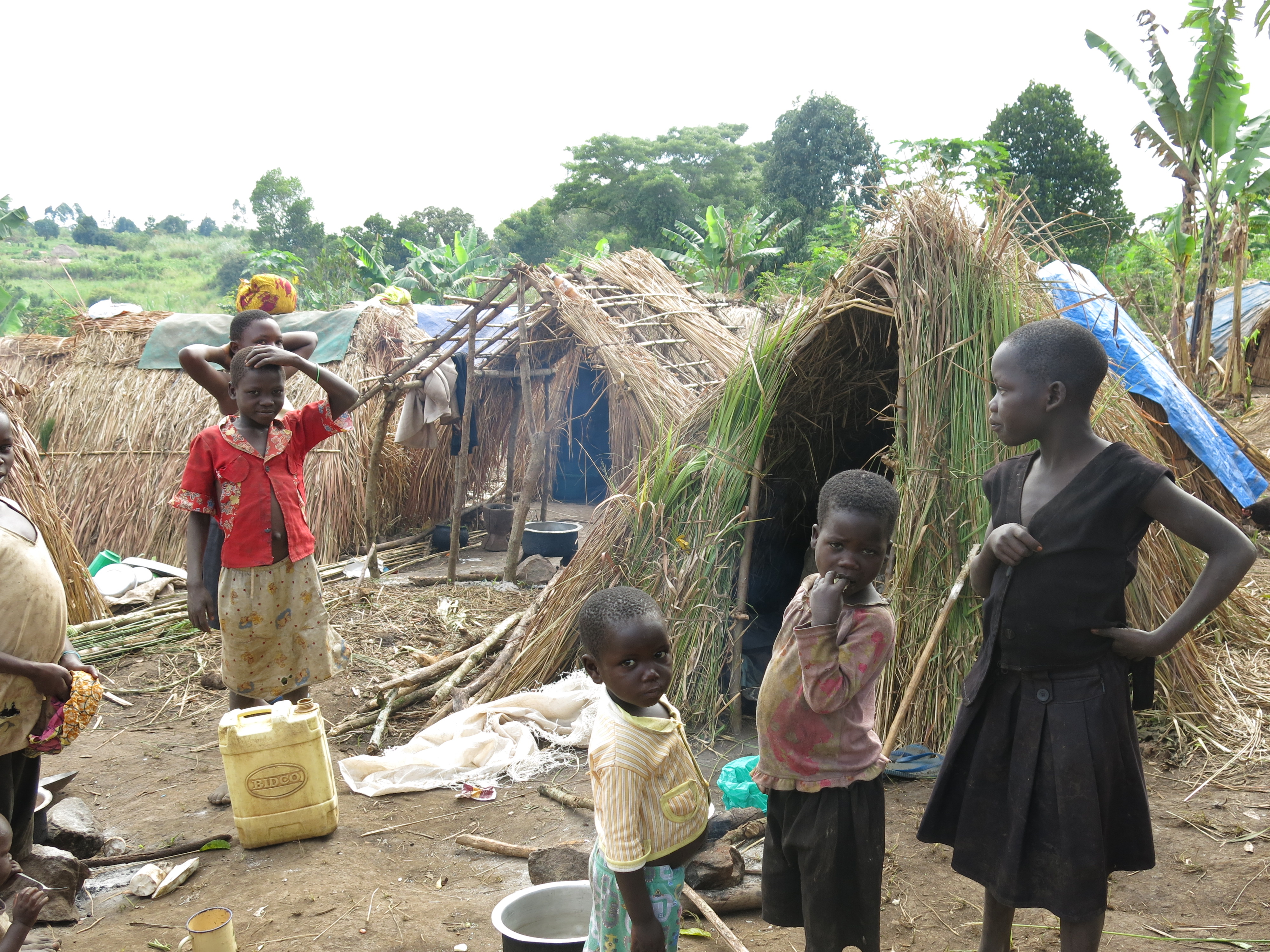 Over 2000 residents face eviction in Mubende, blame District Land Board
Over 2000 residents face eviction in Mubende, blame District Land Board
You may like
-


A tree planting Chinese Company, Formosa Limited in fresh illegal land eviction…
-


A long journey to freedom: Trial of 10 community members in Mityana flops
-


Sad tales of how grabbers use foolery to grab community land
-
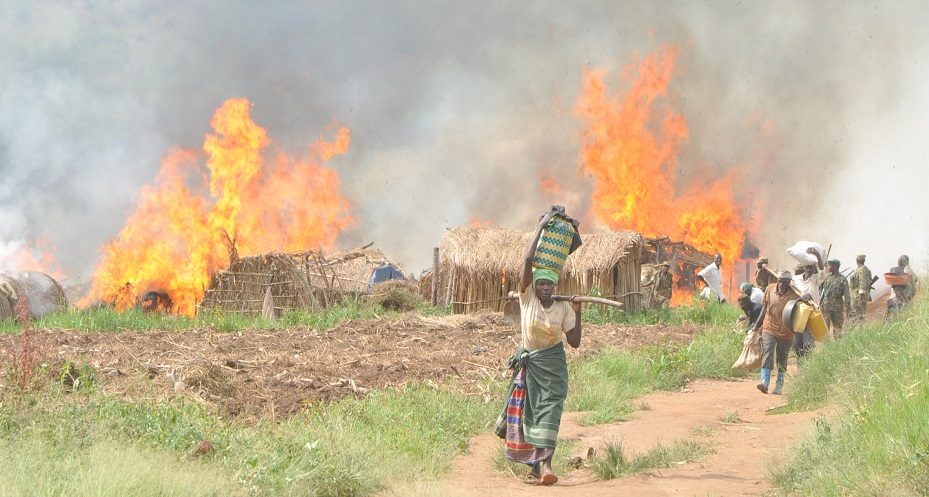

Land grabs victims in Uganda meet amid escalating cases of illegal evictions and rights violations
-
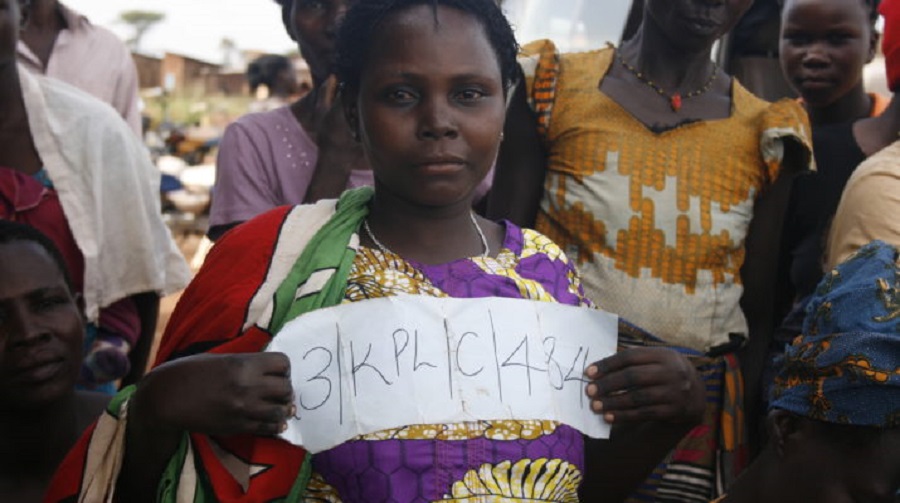

Civil Society Petitions U.S, British Governments Over Kiryandongo Evictions
-
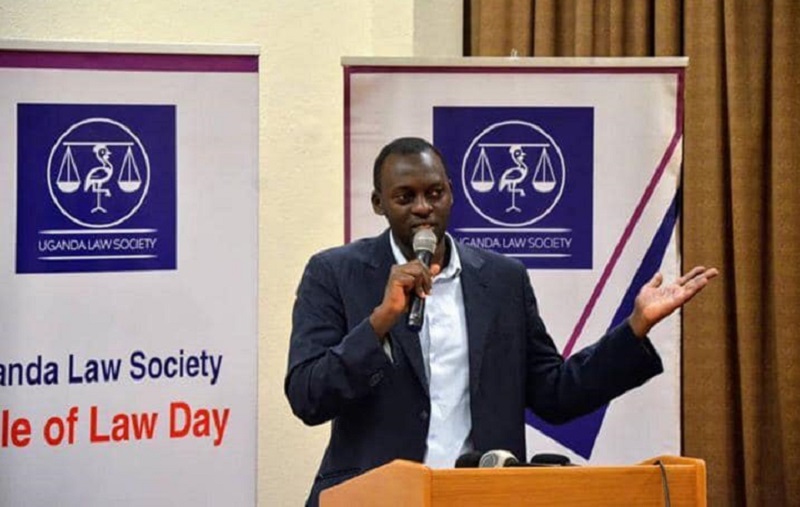

Uganda: Attorney for jailed land rights defenders detained briefly at Kaweeri prison.
WITNESS RADIO MILESTONES
Top 10 agribusiness giants: corporate concentration in food & farming in 2025
Published
4 weeks agoon
June 19, 2025
Today a handful of agribusiness corporations have consolidated unprecedented control over the world’s food supply, with devastating consequences for farmers, consumers and the planet. A new report by ETC Group and GRAIN examines the state of corporate concentration in six sectors critical to agriculture: commercial seeds, pesticides, synthetic fertilisers, farm machinery, animal pharmaceuticals and livestock genetics.
Corporate consolidation is increasing in most of these sectors and four of them– seeds, pesticides, agricultural machinery and animal pharmaceuticals– now meet the definition of an oligopoly, in which four companies control more than 40% of a market. Concentration can be even higher at the national level, as is the case with synthetic fertilisers.
Top findings from the report include:
- Oligopolies dominate key sectors: Bayer, Corteva, Syngenta, and BASF control 56% of the global commercial seeds market, and 61% of the pesticides market.
- Profiteering amid global crises: Agribusiness giants have exploited crises like the Ukraine war and the COVID-19 pandemic to inflate prices. Fertiliser companies, for instance, saw revenues soar by 57% from 2020 to 2023, with some accused of price gouging.
- Digital and biotech expansion: Corporations are rapidly integrating AI, gene editing, and digital platforms into agriculture through partnerships with Big Tech companies. These technologies enable data extraction from farmers, facilitate carbon credit schemes, and tighter control over food systems—while raising concerns about biosafety, privacy, and corporate monopolies.
Source: grassrootsonline
Related posts:

 A corporate cartel fertilises food inflation
A corporate cartel fertilises food inflation
 Food inflation: The math doesn’t add up without factoring in corporate power
Food inflation: The math doesn’t add up without factoring in corporate power
 African governments are giving in to corporate pressure and undermining local seed systems – report
African governments are giving in to corporate pressure and undermining local seed systems – report
 The United Nations Food Systems Summit is a corporate food summit —not a “people’s” food summit
The United Nations Food Systems Summit is a corporate food summit —not a “people’s” food summit
WITNESS RADIO MILESTONES
Land grabbers evict 360,000 Ugandans in 2024
Published
8 months agoon
November 20, 2024
A staggering 363,021 Ugandans were displaced due to forced land evictions between January and June 2024, according to a new report by Witness Radio Uganda.
The report documented 90 cases of land evictions during this period, with nearly four incidents occurring weekly, affecting over 15,126 people and threatening 5,060 hectares of land nationwide.
The Central region was the epicenter, recording 52 eviction cases, followed by 24 in the Western region, eight in the Northern region, and six in the Eastern region. Alarmingly, the report estimated that 2,160 Ugandans face eviction daily, with 723 hectares of land at risk of being grabbed every day.
VIOLENCE AND HUMAN RIGHTS VIOLATIONS
Despite government promises and directives from President Museveni to halt evictions, land grabbers have routinely ignored these orders, often resorting to violence. Armed security forces, private militias, and police were reported to have carried out the majority of the evictions.
Of the reported cases, 37 were enforced by armed gangs on behalf of evictors, 25 involved Uganda Police, five were carried out with the participation of UPDF soldiers, and four were linked to private security companies.
“The egregious levels of impunity exhibited by land grabbers have left communities defenseless, creating an environment where their human rights are trampled without consequence,” said Jeff Wokulira Ssebaggala, country director of Witness Radio Uganda.
He called for accountability and justice, warning that the unchecked power of influential individuals and entities leaves marginalized communities vulnerable and without recourse.
DRIVERS OF EVICTIONS: INDUSTRIALIZATION AND LAND-BASED INVESTMENTS
The report identified the government’s push for industrialization and land-based investments as the primary drivers of forced evictions. Land is increasingly targeted for oil and gas extraction, mining, agribusiness and tree plantations for carbon offsets. While some of this land is already under development, other parcels remain vacant but are guarded by military personnel and private security firms.
Ssebaggala emphasized that industrialization must balance economic development with the protection of smallholder farmers’ rights to land and food security.

TRAGIC STORIES
The report highlighted harrowing cases that underscore the human toll of forced evictions. In Nakasongola, smallholder farmer Dan Ssebyala was ambushed and killed by armed men following a confrontation over disputed land. The district has become a hotspot for violent evictions involving absentee landlords and powerful investors.
Ismael Bwowe, a disabled father of 20, recounted how his land was confiscated after he demanded fair compensation. He faced intimidation, arrests and false charges from state authorities, including being accused of robbing an influential individual. Bwowe claimed that Total Energies offered legal support and representation on the condition that he accept their compensation terms.
“I refused,” he said, adding that the pressure to relinquish his land remains intense. The report underscores the urgent need for reforms to address forced evictions, ensure accountability, and protect the rights of vulnerable communities. Without meaningful intervention, Uganda risks deepening inequality and undermining the livelihoods of smallholder farmers who are essential to the country’s food security.
FAMILY JAILED AMID LAND DISPUTE
The plight of Richard Ssebagala, his wife Prossy Namande, and their relative Anania Ngabirano, residents of Kabubu-Kabongo village in Nansana Municipality, Wakiso district, highlights the human toll of Uganda’s ongoing land disputes. The family spent nine months in prison following their arrest on January 10, 2024, under controversial circumstances.
ARREST AND ALLEGATIONS
The arrests occurred at 1am, during a raid by officers from Luweero police station. Police reportedly banged on the doors and forcefully detained the family, accusing them of aggravated robbery. However, the family believes the arrest was a tactic linked to a land dispute with Benon Ntambi, a man who allegedly grabbed their land.
Before the arrests, Ntambi had reportedly destroyed crops, including tomatoes, potatoes, and bananas, on the contested land. While the family was incarcerated, a new building was constructed on their land, which is now occupied, raising further questions about the motivations behind their detention.
CALLS FOR JUSTICE
The case has drawn attention from Witness Radio Uganda, which has urged the government to take immediate action to address land grabbing and illegal evictions. The organization emphasized the need to strengthen land laws and protect vulnerable communities from abuses.
It also called for greater accountability in institutions such as the Uganda Police Force, the army and land registries, which are often accused of corruption and favoritism toward the wealthy.
“The government must prioritize justice for victims of illegal evictions and address systemic corruption that leaves the poor defenseless against land grabbers,” Witness Radio Uganda stated.
BROADER CONTEXT
This case underscores the broader issue of land conflicts in Uganda, where vulnerable families are often caught in disputes with powerful individuals or entities. Advocacy groups warn that the failure to address these issues not only erodes public trust but also perpetuates inequality and injustice.
As the government faces mounting pressure to act, the story of Ssebagala and his family serves as a stark reminder of the urgent need for reforms to protect land rights and ensure justice for those impacted by land disputes.
Source: The Observer
Related posts:

 Local land grabbers evict villagers at night; foreign investors cultivate the same lands the next day
Local land grabbers evict villagers at night; foreign investors cultivate the same lands the next day
 Uganda: Land-grab victim communities will join counterparts in commemorating the 2024 International Day of Struggle Against Industrial Plantations.
Uganda: Land-grab victim communities will join counterparts in commemorating the 2024 International Day of Struggle Against Industrial Plantations.
 Mubende Land Grab: Witnessradio.org presents another petition to Land Inquiry Commission, Wants All Titles being used to evict Natives to be Investigated
Mubende Land Grab: Witnessradio.org presents another petition to Land Inquiry Commission, Wants All Titles being used to evict Natives to be Investigated
 A Nullity? Ugandans Query Constitutional Land Amendment Bill
A Nullity? Ugandans Query Constitutional Land Amendment Bill
WITNESS RADIO MILESTONES
Uganda: Community members violently evicted by security forces, allegedly related to EACOP; incl. co. responses
Published
8 months agoon
November 18, 2024
On 10 February 2023, more than 2,500 community members were forcibly evicted from their land in Kapapi village in Hoima district in Western Uganda by security forces, receiving no compensation or resettlement.
Witness Radio, an Ugandan non-profit organisation comprised of human rights investigative journalists, lawyers, and social workers, said that many people were wounded during the eviction, women were raped, and houses were destroyed.
Witness Radio said its investigations found that this eviction occurred to clear the path for the Tilenga feeder pipeline, part of the East African Crude Oil Pipeline (EACOP). According to Witness Radio, in 2022 Kapapi community members’ land was surveyed for the Tilenga pipeline and people were informed they would be compensated for the land. Instead, they were forcibly evicted, which Witness Radio allege was backed and financed by Swacoff Intertrade Company Limited, known to TotalEnergies. They also allege that guards from private security company Magnum Security were involved. Witness Radio has also found that dozens of local farmers who were evicted have been arbitrarily arrested and face criminal charges.
The Business & Human Rights Resource Centre invited TotalEnergies, Swacoff Intertrade Company Limited, and Magnum Security to respond to the allegations. TotalEnergies responded and stated that no land eviction activities had been carried out by or on behalf of TotalEnergies EP Uganda (TEPU) and EACOP Ltd and that none of the affected people are Tilenga or EACOP Project Affected Persons. Swacoff responded and said that the company has never engaged in forceful eviction of any sort and asserts that these allegations are completely false. Their full responses and rejoinders from Witness Radio are available below. Magnum Security did not respond.
Related posts:

 Uganda: NGO claims Agilis Partners & Great Seasons violently evicted locals to pave the way for agribusiness; Agilis Partners responds
Uganda: NGO claims Agilis Partners & Great Seasons violently evicted locals to pave the way for agribusiness; Agilis Partners responds
 A son of the community defender is shot dead, another critically injured in a retaliatory attack by security guards evicting locals off their land to give way to large-scale sugarcane growing.
A son of the community defender is shot dead, another critically injured in a retaliatory attack by security guards evicting locals off their land to give way to large-scale sugarcane growing.
 Breaking: Criminal trial for seven community defenders opposed to EACOP/Tilenga project forced land eviction has been fixed.
Breaking: Criminal trial for seven community defenders opposed to EACOP/Tilenga project forced land eviction has been fixed.
 Uganda: CSOs claim Agilis Partners forcibly evicting local communities to pave way for agribusiness; company did not respond
Uganda: CSOs claim Agilis Partners forcibly evicting local communities to pave way for agribusiness; company did not respond

A land rights defender and his wife have been arrested, charged, and sent to prison.

Land Grabbing Crisis Escalates in Uganda: Mayiga Urges Citizens to Secure Land Documents

Seizing the Jubilee moment: Cancel the debt to unlock Africa’s clean energy future

Activism on Trial: Despite the increasing repressive measures, Uganda’s EACOP protesters are achieving unexpected victories in the country’s justice systems.

A decade of displacement: How Uganda’s Oil refinery victims are dying before realizing justice as EACOP secures financial backing to further significant environmental harm.

Activism on Trial: Despite the increasing repressive measures, Uganda’s EACOP protesters are achieving unexpected victories in the country’s justice systems.

Govt launches Central Account for Busuulu to protect tenants from evictions

Communities Under Siege: New Report Reveals World Bank Failures in Safeguard Compliance and Human Rights Oversight in Tanzania

Innovative Finance from Canada projects positive impact on local communities.
Over 5000 Indigenous Communities evicted in Kiryandongo District
Petition To Land Inquiry Commission Over Human Rights In Kiryandongo District
Invisible victims of Uganda Land Grabs
Resource Center
- LAND GRABS AT GUNPOINT REPORT IN KIRYANDONGO DISTRICT
- RESEARCH BRIEF -TOURISM POTENTIAL OF GREATER MASAKA -MARCH 2025
- The Mouila Declaration of the Informal Alliance against the Expansion of Industrial Monocultures
- FORCED LAND EVICTIONS IN UGANDA TRENDS RIGHTS OF DEFENDERS IMPACT AND CALL FOR ACTION
- 12 KEY DEMANDS FROM CSOS TO WORLD LEADERS AT THE OPENING OF COP16 IN SAUDI ARABIA
- PRESENDIANTIAL DIRECTIVE BANNING ALL LAND EVICTIONS IN UGANDA
- FROM LAND GRABBERS TO CARBON COWBOYS A NEW SCRAMBLE FOR COMMUNITY LANDS TAKES OFF
- African Faith Leaders Demand Reparations From The Gates Foundation.
Legal Framework
READ BY CATEGORY
Newsletter
Trending
-

 SPECIAL REPORTS AND PROJECTS2 weeks ago
SPECIAL REPORTS AND PROJECTS2 weeks agoActivism on Trial: Despite the increasing repressive measures, Uganda’s EACOP protesters are achieving unexpected victories in the country’s justice systems.
-

 DEFENDING LAND AND ENVIRONMENTAL RIGHTS3 days ago
DEFENDING LAND AND ENVIRONMENTAL RIGHTS3 days agoA land rights defender and his wife have been arrested, charged, and sent to prison.
-

 SPECIAL REPORTS AND PROJECTS7 days ago
SPECIAL REPORTS AND PROJECTS7 days agoSeizing the Jubilee moment: Cancel the debt to unlock Africa’s clean energy future
-

 MEDIA FOR CHANGE NETWORK7 days ago
MEDIA FOR CHANGE NETWORK7 days agoLand Grabbing Crisis Escalates in Uganda: Mayiga Urges Citizens to Secure Land Documents
